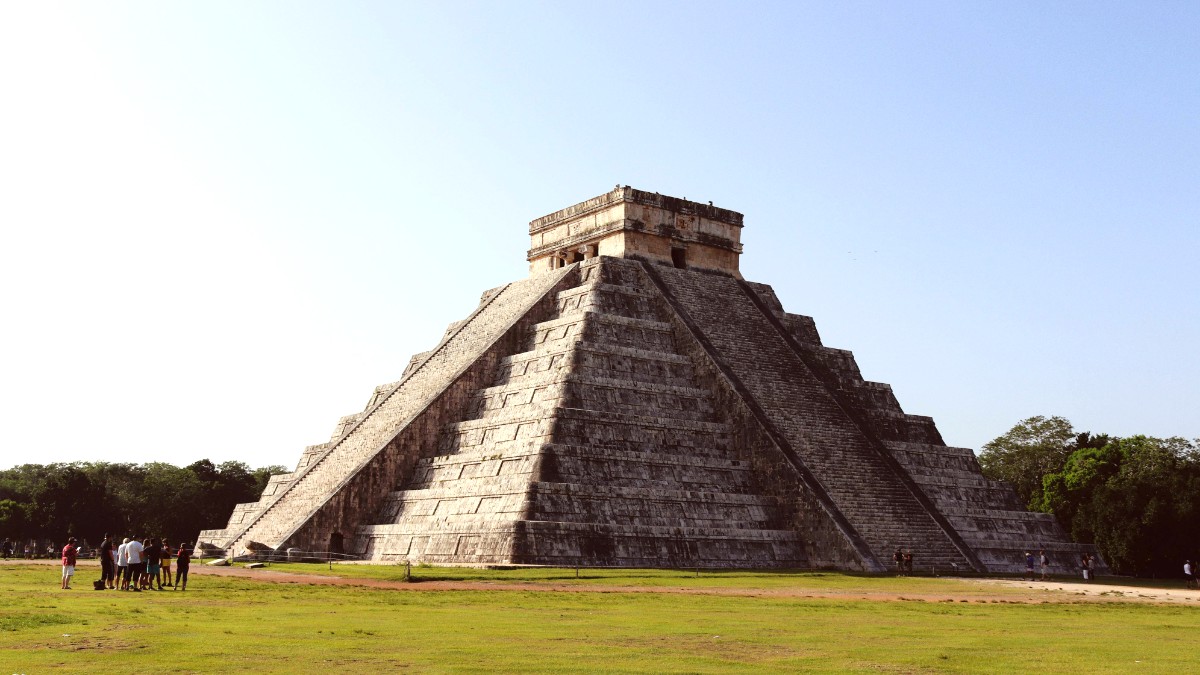
Yucatan Peninsula, Mexico
The fusion of ancient Mayan traditions with Spanish, Caribbean, and Lebanese cultures shaped Yucatecan cuisine. Slow cooking in an underground oven, or "pib," imparts deep, smoky flavors to meats.
ingredients include Achiote (annatto) for earthy, peppery notes, sour orange for tartness, and Habanero peppers for fruity heat, often served as a side salsa (xnipec). Corn, pork, chicken, turkey, epazote, oregano, cumin, and garlic are also foundational.
Some dishes might differ slightly in preparation between Mérida and eastern Yucatan towns. These variations stem from local ingredient availability, family recipes, or historical influences in specific towns. However, core flavors and cooking principles persist.
Dining in local eateries ("loncherías," "comedores") and street food stalls is very informal, offering a casual and authentic experience. Keep your hands above the table as a polite practice.
The habanero salsa (xnipec) served on the side is often fiery. Taste a tiny bit first before adding liberally. Saying "Buen Provecho" (enjoy your meal) when passing people eating is common and polite.
Pork marinated in achiote and sour orange, slow-roasted in a "pib." Incredibly tender, served with pickled red onions and habanero salsa. Found at local restaurants, markets, and specialized stands in Valladolid and Mérida.
A breakfast or lunch staple.
Fragrant chicken and lime soup with shredded chicken, crispy tortilla strips, and fresh lime juice in a clear broth. A unique and quintessential Yucatecan taste. Widely available in local and mid-range restaurants.
Refreshing and flavorful.
Panuchos are fried tortillas stuffed with black beans, topped with turkey/chicken, pickled red onion, avocado. Salbutes are similar but without beans, lighter. Popular street foods and snacks.
Perfect for a quick bite.
Horchata (sweet rice milk), Agua Frescas (fruit waters), Atole (warm corn drink), Local Beers (Montejo, Leon Negra), Tequila/Mezcal, Xtabentún (Mayan honey-anise liqueur).
Dulce de Papaya (sweet papaya with cheese), Flan (caramel custard), Frutas Frescas (tropical fruits). Look for seasonal festival foods like "Mucbipollo" (Day of the Dead).
Limited directly in Pisté. Valladolid offers some upscale dining in boutique hotels and haciendas with refined Yucatecan or international cuisine. Mérida has a wider selection of fine dining restaurants for sophisticated palates.
Abundant in Valladolid, offering comfortable dining with traditional Yucatecan and general Mexican fare. Places like El Meson del Marques and La Casona de Valladolid offer pleasant ambiance, good service, and reasonable prices.
"Loncherías" and "Comedores" are small, local eateries serving inexpensive, authentic dishes, often family-run. Find street food stalls around town squares in the evenings for marquesitas, tacos, and tortas.
Dedicated vegetarian/vegan restaurants are challenging to find outside Mérida or Cancun. Many traditional dishes adapt well (e.g., "frijol con puerco" without pork). Vegan options require careful inquiry about lard use.
Corn tortillas are naturally gluten-free.
Halal and Kosher options are not widely available. Clearly communicate any allergies in Spanish (e.g., "Soy alérgico a..."). Carrying a translation card or using an app is beneficial.
Online forums and apps like HappyCow can find suitable restaurants.
Available in Valladolid and Mérida. Learn to prepare traditional Yucatecan dishes hands-on.
In Mérida, explore local markets, street food, and eateries with guided tastings.
Some haciendas or eco-tourism initiatives offer tours of agave or honey production.
Seek opportunities to try dishes like cochinita pibil cooked in an underground oven.
Loncherías and comedores are ideal for inexpensive, authentic meals. These family-run spots offer a genuine taste of local life, especially for breakfast and lunch around markets.
Immerse yourself in daily life.
Valladolid Municipal Market offers fresh produce, meats, spices, and small food stalls. It is a great place to try varied foods and experience local culture.
Glimpse local life.
Direct international cuisine options are limited around Chichen Itza. Valladolid has a few Italian or American-style choices. Mérida and Cancun, as larger cities, offer a full spectrum of global cuisines.
Consider dining at a restored hacienda for a special occasion. These venues often combine historical charm with high-quality Yucatecan cuisine in an unique atmosphere, making for a memorable experience.
Popular in Valladolid and Mérida. These hands-on experiences teach preparation of traditional Yucatecan dishes, offering insight into local ingredients and cooking techniques.
Available in Mérida, these tours explore local markets, street food stalls, and traditional eateries. A guided tasting journey with historical context.
Some haciendas or eco-tourism initiatives may offer tours related to agave or honey production, providing a direct connection to local ingredients.
Don't hesitate to ask locals or hotel staff for their favorite spots. They can steer you to authentic, less touristy eateries.
Discover hidden culinary gems.
Be adventurous with your food choices. Yucatecan cuisine is distinct and offers many unique flavors not found elsewhere in Mexico.
Expand your palate.
Witness the traditional underground oven cooking method for dishes like cochinita pibil. This unique process produces exceptionally tender and flavorful meats.
Visit local producers to learn about the process of making agave spirits or harvesting honey from Melipona bees, an unique native stingless bee species.
Check local event calendars for food festivals, especially in Mérida. These events celebrate regional specialties and often feature unique dishes not found daily.
Approach street food with confidence! Choose stalls that have long lines of locals. This indicates popularity and usually good hygiene due to high turnover of freshly cooked food.